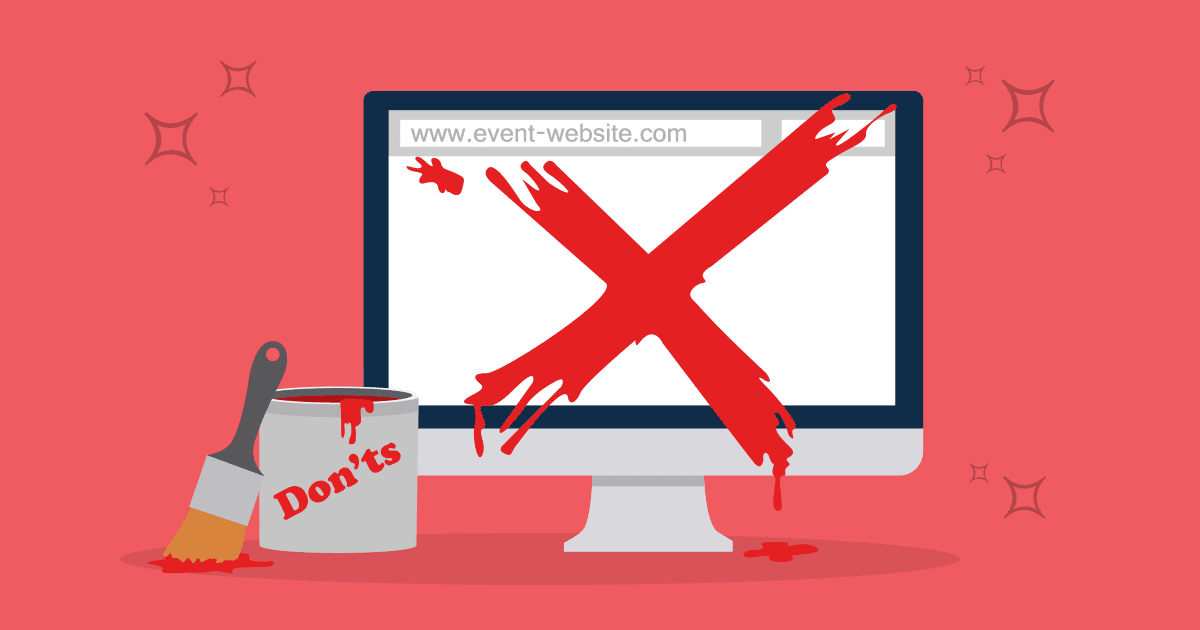Part 1: Don’ts of Event Websites
Tasked with creating and launching a functional and user-friendly event website? There are a few all-too-common mistakes you’ll want to avoid that could doom your site from the very beginning.
Weak Calls-to-Action
More than likely, the end goal of your website is to encourage event registration for potential attendees—but if visitors don’t see an easy and convenient way to register, there’s a good chance they’ll leave your site. Rather than making your visitors scour your site to find event registration online, make sure that every single page of your site has a strong and clear call-to-action that links directly to your online event registration page.
Asking Too Much
Speaking of event registration, remember that simpler is better. One of the worst mistakes you can make on your website as an event planner is requiring potential attendees to supply too much information on the registration page. While it’s perfectly understandable to ask for some basic information, such as attendees’ names and e-mail addresses and/or phone numbers, you should avoid asking them for more information than you really need. Limit additional questions or inquiries to no more than three or risk frustrating visitors to the point of changing their minds.
Burying Important Information
Successful conference websites are all about the user experience. Key information should be easy to locate and understand, yet one of the most common mistakes event planners make when creating these sites is accidentally burying important information. By just visiting your event website’s home page, visitors should be able to immediately find out the name of your event, the dates and times, the location, and some general information on what sets the event apart or makes it worth attending. Other important information that needs to be easily navigable includes registration deadlines, costs, and event details (like key speakers).
Lack of Responsive Design
These days, more people are using mobile devices, such as tablets and smartphones, to browse the Web than ever. In fact, these devices are now more commonly used than standalone desktop and laptop computers. With this in mind, it is imperative that your site be responsive in its design; this means it should not contain any coding or design components that cannot be easily viewed across a variety of mobile and non-mobile devices. This is where having an experienced web design professional on your side can make all the difference.
There are a lot of mistakes you can make in planning and designing your event website, but these are a few of the worst (and most common). By taking measures to avoid these mistakes, your site will be more user-friendly and effective!
